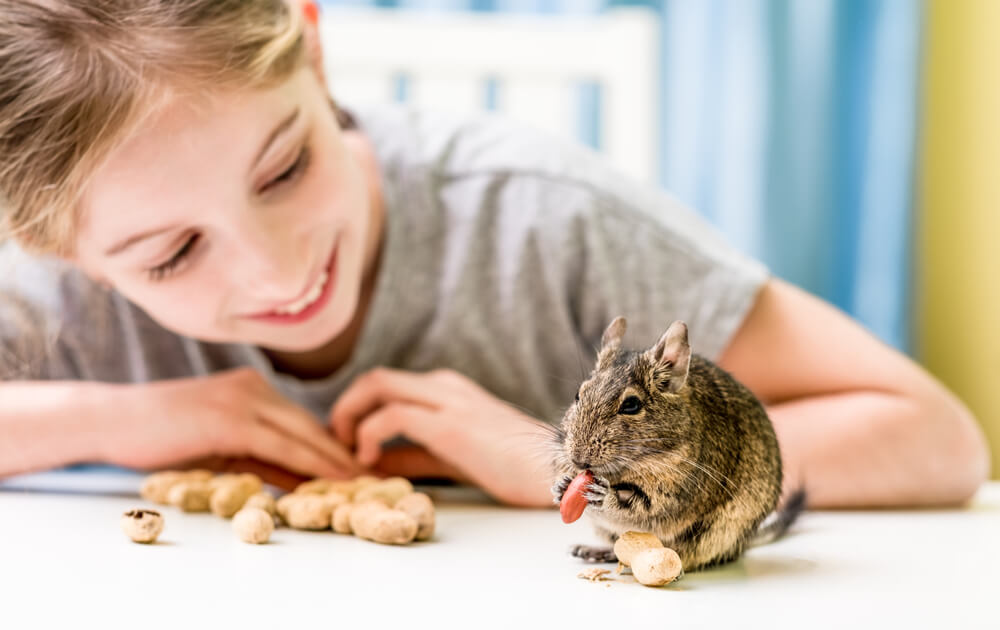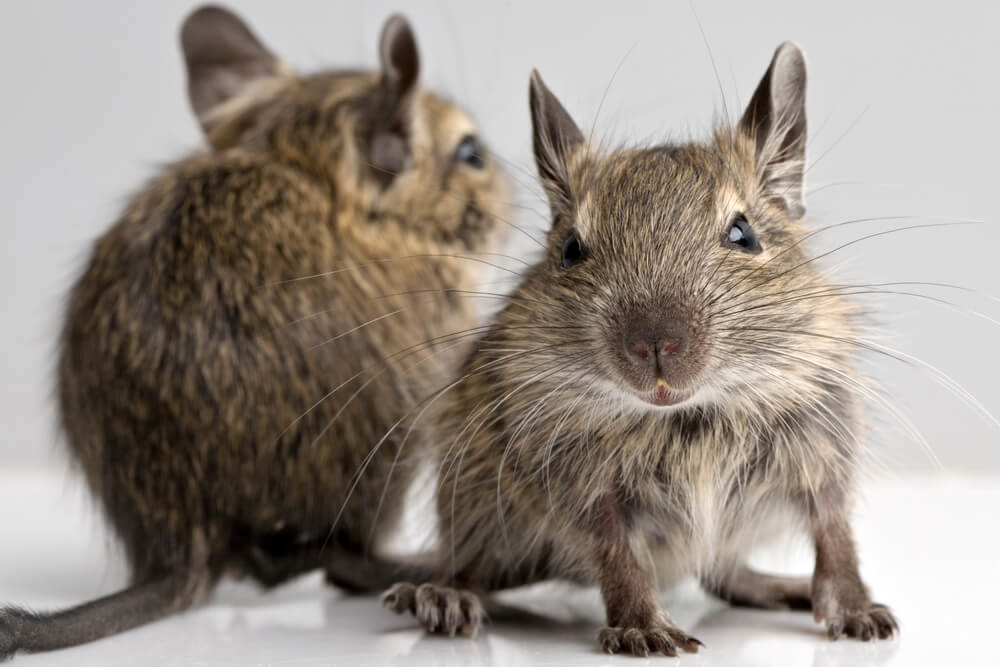Meet the degu, a small but charismatic rodent that's been steadily winning hearts around the globe. Originally hailing from the central and northern parts of Chile, these sociable creatures have found their way into homes far beyond their native shrublands, becoming increasingly popular pets in recent years.
Degus are noted for their playful nature and high intelligence, making them engaging companions for those willing to meet their unique needs. They're also known for their distinct appearance, characterized by a gray-brown coat, large eyes, and a tufted tail.
But what is it about these little rodents that's capturing the attention of pet enthusiasts worldwide? And just how did they go from burrowing in the Chilean matorral to nestling in our living rooms? Join us as we delve into the fascinating world of degus, exploring their origins, adaptations, and journey into domesticity.
The Homeland of Degus
Diving into the heart of our topic, we journey to the homeland of the degus. These fascinating creatures are indigenous to Chile, particularly its central and northern regions. Their primary habitat is the Chilean “matorral” ecoregion, a unique biome characterized by its shrubland and grassland vegetation.
The matorral ecoregion, with its semi-arid conditions, might seem inhospitable to some, but it's precisely where degus thrive. These resilient rodents have adapted to make this environment their home, capitalizing on what it has to offer. They feed on the abundant plant material and use the open terrain to keep an eye out for potential threats.
One of the most interesting aspects of degus' lifestyle in their native habitat is their communal living. Degus are highly social animals, forming large communities that cooperate for survival. These communities are not just on the surface; they extend below ground as well. Degus are expert burrowers, digging complex tunnel systems that serve as their homes. These underground burrows provide protection from predators and the elements, and also serve as a place to store food and raise their young.
Adaptations to Their Environment
Adapting to the environment is a key survival strategy for any species, and degus are no exception. Living in the semi-arid shrublands of Chile has led these small animals to develop a fascinating set of adaptations that help them thrive in their native habitat.
Burrowing Lifestyle
One of the most notable adaptations of degus is their burrowing lifestyle. Degus are adept at digging complex systems of underground tunnels and burrows. These subterranean homes serve multiple purposes: they provide shelter from harsh weather conditions, offer refuge from predators, and even act as storage areas for food. This adaptation allows degus to exploit an environment that might otherwise be inhospitable.
Dietary Adaptations
The diet of degus is another key aspect of their adaptation to their environment. In the shrubland ecoregion where they live, plant material is abundant. Degus mainly feed on an herbivorous diet, which includes leaves, seeds, fruits, and bark available in their habitat. Their digestive system is well-adapted to process this type of food, and their cheek teeth continue to grow throughout their lives, allowing them to constantly grind down plant material.
Social Structure
Degus live in groups, often with complex social structures. This social behavior is another significant adaptation, enabling them to work together for protection, food gathering, and raising their young. It's a testament to their intelligence and adaptability.
Degus Beyond Chile
While degus are native to Chile, their charming personalities and unique characteristics have led to their spread far beyond their homeland, primarily through the pet trade. Today, you can find degus in homes around the globe, from Europe to North America and beyond.
However, this global spread of degus does come with some complications. In certain regions, particularly in some states in the U.S., owning degus is actually illegal. This is due to concerns about them potentially becoming an invasive species. If released into the wild, degus could disrupt local ecosystems by competing with native species for resources or introducing new diseases.
Invasive species can cause significant damage to the environments they colonize, so these restrictions are in place to prevent such scenarios. For instance, in Georgia, it's against the law to keep degus as pets.
Therefore, while degus have indeed found homes beyond Chile, it's crucial for potential owners to be aware of local laws and regulations surrounding their ownership. It's also important to remember that, as with any pet, owning a degu comes with a responsibility to provide appropriate care and to prevent the animal from contributing to environmental disruption.
Diet & Behavior
Degus are omnivorous, meaning that they eat both plants and small animals. In the wild, their diet consists of seeds, fruits, insects, lizards, and even carrion (dead animal flesh). They also enjoy fresh vegetables like carrots or celery as well as some grains like oatmeal.
In terms of behavior, degus are generally curious creatures that like to explore new environments and interact with other animals. They can become quite tame when hand-raised from a young age, although they tend to be more skittish around strangers. They also have a tendency to hoard food and hide it away in their burrows, so if you’re keeping degus as pets make sure you provide them with plenty of treats!
Health & Care
Like all pets, degus require special attention and care to ensure they stay healthy. Degus are prone to diabetes, so it's important to keep their dietary habits in check and avoid foods with high sugar content. It's also essential to provide adequate mental stimulation and physical exercise in the form of running wheels. Cage size also matters; make sure you give your degu plenty of space for daily activities such as climbing, foraging, and playing.
On a more general note, degus should be given regular health checks by a veterinarian who specializes in exotic animals. This can help detect any potential problems early on before they become serious issues. Additionally, establishing consistent feeding schedules with appropriate nutrition helps support long-term health and wellness.
Summing It Up
To sum up, degus are native to Chile and have adapted to their environment with a burrowing lifestyle, plant-based diet, and social structure. Their popularity as pets has spread globally, but it's important to consider local laws due to invasive species concerns. Understanding a degu's natural habitat and instincts is crucial for providing the right care.







